Launch of Make Your Mark Inclusive Volunteering Toolkit: Version 2
We're pleased to announce the launch of version 2 of the Make Your Mark Inclusive Volunteering Toolkit, which is designed to support voluntary organisations in Scotland to make their volunteering programmes more inclusive.
The toolkit was informed by focus groups with marginalised people, surveys of voluntary organisations and extensive desk-based research on inclusive volunteering. The toolkit is part of Scotland’s Volunteering Action Plan, and was created in partnership with the University of Strathclyde. It was funded by the Scottish Government and the National Lottery Heritage Fund.
We launched version 1 of the Make Your Mark Inclusive Volunteering Toolkit in November 2023 at SCVO’s The Gathering. Since then, we’ve been trialling it across Scotland’s heritage and voluntary sectors, receiving feedback and learning about new resources and case studies to include.
The toolkit has been downloaded 4.3k times, and promoted at 16 events totalling 970 attendees. Feedback from event participants include:
- “It changed the way I thought about involving volunteers, and made me see it as more of an opportunity.”
- “The workshop had an impact because I am now implanting a different approach to volunteering.”
- “The toolkit is invaluable.”
- “The workshop flagged up things I hadn’t even considered so now I can think more about different factors that affect people and are barriers to volunteering.”
- "I learned so much from sharing examples of how organisations have progressed inclusive volunteering plans and how we manage to overcome barriers to change"
- "A useful resource for thinking about things such as accessibility, particularly around access to materials"
- "Great session! Volunteering is so important and it is crucial to be actively thinking about how to make it inclusive of everyone!"
We have incorporated all of the feedback and learning since the toolkit’s launch to create a version 2 of the toolkit. Some of the new elements include:
- A section clarifying the difference between volunteering, placements, unpaid work and paid employment.
- Updated stats on volunteering in Scotland from the latest Scottish Household Survey.
- More information around how to address economic barriers to volunteering, which are becoming more prevalent due to the cost of living crisis.
- More information around the legalities of paying expenses.
- Updated approximate costs for inclusive volunteer programme budgets.
- Resources available to empower staff to support volunteers with a range of access needs, specifically around supporting people struggling with their mental health.
- More information on evaluation / measuring volunteer impact, especially collecting qualitative data.
- New case studies on recognising racism in volunteer engagement, rural volunteering, supporting refugees and people seeking asylum to join boards, creating pathways to volunteering for people accessing mental health support, volunteering and UK welfare benefits and creating an inclusive volunteer philosophy.
- A reflection worksheet to help volunteer organisers start organising their thoughts around making an inclusive volunteering plan.
The Make Your Mark Inclusive Volunteering Toolkit was designed as a living document to be updated regularly to remain reflective of best practice. If you have used our toolkit and have any feedback on topics we may have missed, or information or practice that is now outdated, or inclusive volunteer case studies that you’d like to include, please do drop us a line at hello@makeyourmark.scot. By working together to remove barriers and share best practice, we can make volunteering for all.
Access version 2 of the Make Your Mark Inclusive Volunteering Toolkit!
Join Make Your Mark
Join 100+ volunteer-involving heritage organisations in Scotland who are working together to make heritage volunteering for all.

About the author
Make Your Mark
This is the make your mark author, can be used as a default.